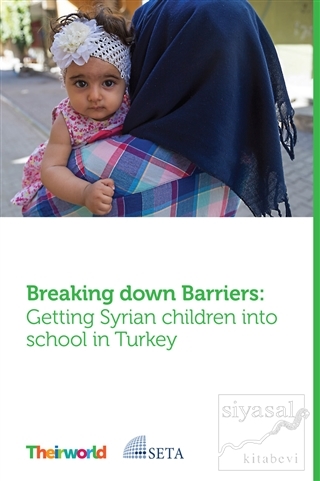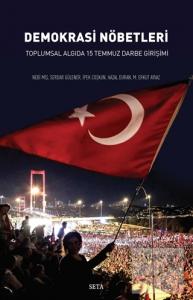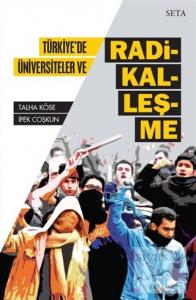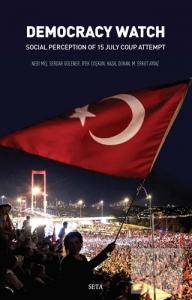Breaking Down Barriers: Getting Syrian Children Into Schools in Turkey

The impact of humanitarian crises experienced in Syria since 2011 has been felt throughout the world. However, the experience of Turkey, in the context of this crisis, sets an example for the international community. With the open door policy it follows, Turkey is the country in which the largest number of refugees has taken shelter. According to official figures, Turkey has shouldered the largest part of the responsibility by receiving 3,006,298 Syrians. Considering the number of Syrians hosted in our country, it can be claimed that integration of these individuals to social life is crucial.
Education is one of the most important factors in social inclusion, especially as students are faced with the risk of becoming a lost generation when they are distanced from educational opportunities due the crisis. The Ministry of National Education (MoNE) has identified a road map to prevent this and taken steps towards its implementation. In this framework, 59% of about 1 million Syrian students at basic education level have already received some form of schooling. In addition, all Syrian students currently at school are planned to be integrated into the public education system gradually.
Since the first years of the Syrian crisis, SETA Foundation has supported the inclusion process through various studies on Syrians' legal positions in Turkey and their social inclusion and most primarily; their education. With special sensitivity to the issue of Syrians' education, in this study, SETA Foundation cooperated with Theirworld. Theirworld has proved to be an emphatic partner for SETA Foundation since it has a powerful position in the world with their studies and reports on the plight of Syrians.
I would like to thank PICTES Project Coordinator Haydar Şahin and Assistant Coordinator Sevgi Ernas and Ministry of National Education Lifelong Learning General Director Ali Rıza Altunel for their contributions to this report. I also owe a debt of gratitude to Ministry of National Education Deputy Secretary Ercan Demirci for his full support for this report.
The impact of humanitarian crises experienced in Syria since 2011 has been felt throughout the world. However, the experience of Turkey, in the context of this crisis, sets an example for the international community. With the open door policy it follows, Turkey is the country in which the largest number of refugees has taken shelter. According to official figures, Turkey has shouldered the largest part of the responsibility by receiving 3,006,298 Syrians. Considering the number of Syrians hosted in our country, it can be claimed that integration of these individuals to social life is crucial.
Education is one of the most important factors in social inclusion, especially as students are faced with the risk of becoming a lost generation when they are distanced from educational opportunities due the crisis. The Ministry of National Education (MoNE) has identified a road map to prevent this and taken steps towards its implementation. In this framework, 59% of about 1 million Syrian students at basic education level have already received some form of schooling. In addition, all Syrian students currently at school are planned to be integrated into the public education system gradually.
Since the first years of the Syrian crisis, SETA Foundation has supported the inclusion process through various studies on Syrians' legal positions in Turkey and their social inclusion and most primarily; their education. With special sensitivity to the issue of Syrians' education, in this study, SETA Foundation cooperated with Theirworld. Theirworld has proved to be an emphatic partner for SETA Foundation since it has a powerful position in the world with their studies and reports on the plight of Syrians.
I would like to thank PICTES Project Coordinator Haydar Şahin and Assistant Coordinator Sevgi Ernas and Ministry of National Education Lifelong Learning General Director Ali Rıza Altunel for their contributions to this report. I also owe a debt of gratitude to Ministry of National Education Deputy Secretary Ercan Demirci for his full support for this report.


























